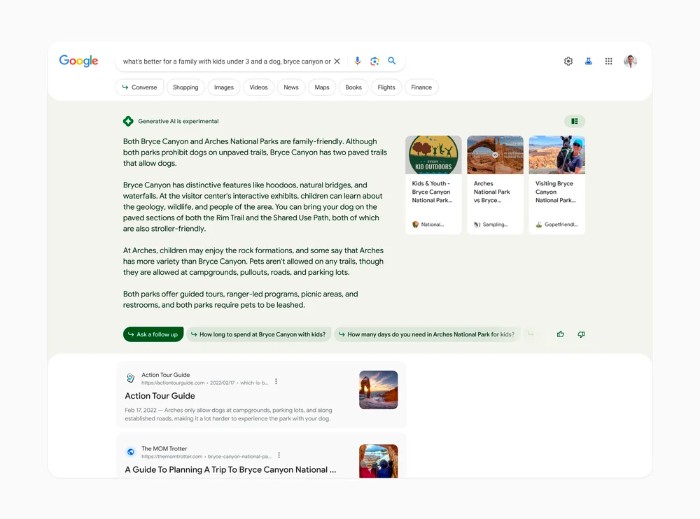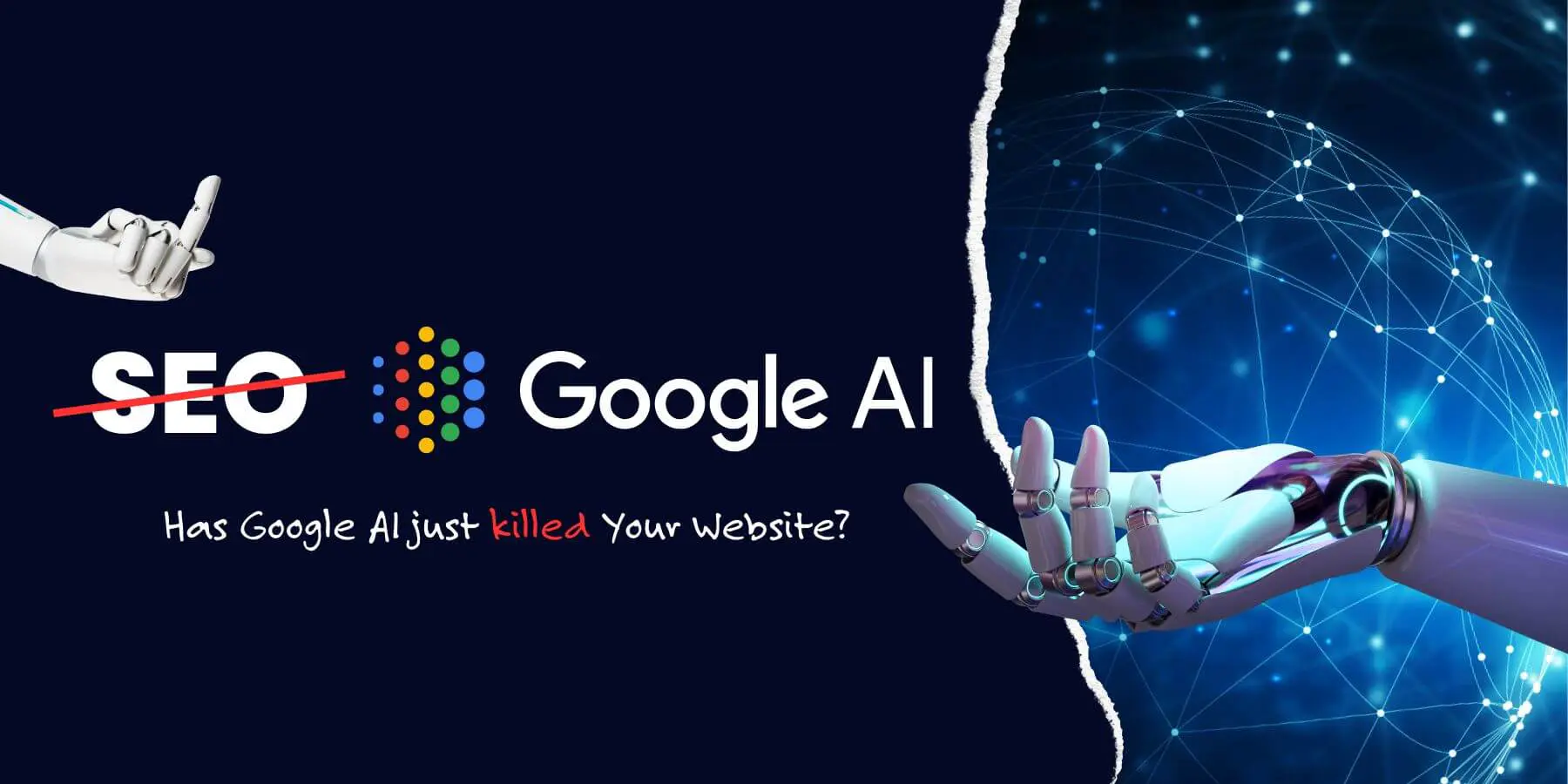Google's Generative AI Search: What Does It Mean for Your Website?
Google is constantly evolving to improve user experience, and its latest development in the world of search is the introduction of generative AI search. This new technology looks impressive from a user's perspective, but what does it mean for your website? Has your site just become redundant?
Let's check out Google's generative AI search and how it might affect your website.

Understanding Google's Generative AI Search
Before diving into the implications for your website, let's first understand what Google's generative AI search is all about. Google has been working on incorporating artificial intelligence into its search engine to provide users with more accurate and relevant results.
Key Features of Generative AI Search
- Natural Language Understanding: The AI can comprehend complex queries and provide results that are more accurate and relevant.
- Improved Autocomplete Suggestions: Google's generative AI search offers better autocomplete suggestions, allowing users to find what they're looking for faster.
- Dynamic Results: The AI can generate search results dynamically, taking into account the context of the query and providing more personalized results.
The Impact on Websites
Now that we have a better understanding of what Google's generative AI search entails, let's explore how it might affect your website.
Pros:
- Improved Search Relevance: Google's generative AI search can better understand user queries and provide more relevant search results, which can lead to increased visibility for websites with high-quality content that directly addresses users' needs.
- Enhanced User Experience: As the AI provides more accurate and personalized search results, users are likely to find what they're looking for faster, leading to a better overall experience on your website and possibly higher engagement rates.
- Greater Focus on Content Quality: With the AI prioritizing high-quality, relevant content, websites that invest in creating valuable and informative content will be rewarded with improved rankings, encouraging the production of better content across the web.
- Long-Tail Keyword Opportunities: Google's generative AI search is better equipped to handle complex and specific queries. This opens up opportunities for websites to target long-tail keywords and rank higher for niche topics, attracting more targeted and engaged traffic.
- Adaptability to Voice Search: As the AI becomes more adept at understanding natural language, it can better process voice search queries, allowing your website to benefit from the growing trend of voice search usage if it's optimized for conversational language.
Cons:
- Increased Competition: With more accurate search results, websites may face increased competition from other sites that also provide relevant and high-quality content, making it harder to maintain a competitive edge in search rankings.
- Constant Algorithm Updates: As Google continues to refine its generative AI search technology, website owners need to stay updated on the latest algorithm changes and adjust their SEO strategies accordingly, which can be time-consuming and resource-intensive.
- Potential for Traffic Fluctuations: The improved accuracy of search results may lead to traffic fluctuations for some websites, as the AI prioritizes more relevant content over outdated or low-quality content, causing shifts in search rankings.
- Greater Emphasis on Technical SEO: With the increasing importance of natural language understanding, website owners may need to invest more in technical SEO to ensure their site is properly optimized for search engines, including factors like site speed, mobile-friendliness, and structured data.
- Difficulty in Keyword Optimization: As the AI becomes better at understanding context and user intent, traditional keyword optimization strategies may become less effective. Website owners will need to adapt their approach to focus on natural language and semantic search, which can be challenging to navigate and implement.
What does this mean for my website
The introduction of Google's generative AI search raises the question: Will my website be getting less traffic? The answer depends on several factors, such as the quality of your content and how well your website is optimized for search.
- If your website provides high-quality, relevant content, you may see an increase in traffic due to more accurate search results.
- On the other hand, if your website relies on outdated SEO tactics or low-quality content, you may experience a drop in traffic as the AI prioritizes more relevant results.
Although it may seem all doom and gloom and that AI will just take over your site...in fact, it can provide benefits to websites that focus on high-quality content and user experience. As AI becomes better at understanding natural language and providing more accurate search results, websites with relevant and valuable content will likely see improved rankings and increased traffic.
However, it's essential for website owners to stay updated on algorithm changes and continuously optimize their websites for search. By doing so, they can ensure that their website remains competitive in the ever-evolving landscape of search engine technology.
How to Adapt Your Website
To ensure your website remains competitive in the era of generative AI search, consider the following strategies:
- Focus on High-Quality Content: Provide valuable, relevant, and informative content that addresses the needs of your target audience.
- Optimize for Natural Language: Write your content in a natural, conversational tone, and ensure it's easily understandable by both human users and search engines.
- Stay Updated on Algorithm Changes: Keep up with the latest developments in Google's AI technology and adjust your SEO strategy accordingly.
- Monitor Your Website's Performance: Regularly track your website's performance using tools like Google Analytics to identify areas for improvement.
Conclusion
Google's generative AI search offers a more accurate and personalized search experience for users. While this may present some challenges for website owners, it also provides an opportunity to improve your website's performance and user experience. By focusing on high-quality content, optimizing for natural language, staying updated on algorithm changes, and monitoring your website's performance, you can ensure your website remains competitive in the age of generative AI search.
Need a hand with your website? Get in touch with us here to find out more. You can also find our work here

